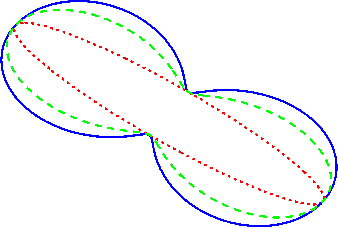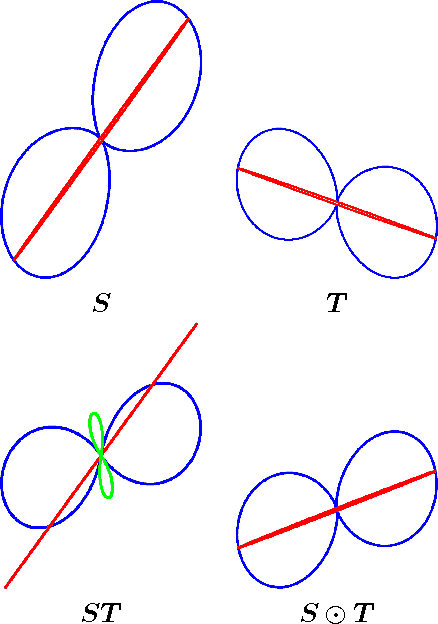A Bayesian Probability Calculus for Density Matrices
Paper and Code
Aug 09, 2014



One of the main concepts in quantum physics is a density matrix, which is a symmetric positive definite matrix of trace one. Finite probability distributions are a special case where the density matrix is restricted to be diagonal. Density matrices are mixtures of dyads, where a dyad has the form uu' for any any unit column vector u. These unit vectors are the elementary events of the generalized probability space. Perhaps the simplest case to see that something unusual is going on is the case of uniform density matrix, i.e. 1/n times identity. This matrix assigns probability 1/n to every unit vector, but of course there are infinitely many of them. The new normalization rule thus says that sum of probabilities over any orthonormal basis of directions is one. We develop a probability calculus based on these more general distributions that includes definitions of joints, conditionals and formulas that relate these, i.e. analogs of the theorem of total probability, various Bayes rules for the calculation of posterior density matrices, etc. The resulting calculus parallels the familiar 'classical' probability calculus and always retains the latter as a special case when all matrices are diagonal. Whereas the classical Bayesian methods maintain uncertainty about which model is 'best', the generalization maintains uncertainty about which unit direction has the largest variance. Surprisingly the bounds also generalize: as in the classical setting we bound the negative log likelihood of the data by the negative log likelihood of the MAP estimator.
 Add to Chrome
Add to Chrome Add to Firefox
Add to Firefox Add to Edge
Add to Edge